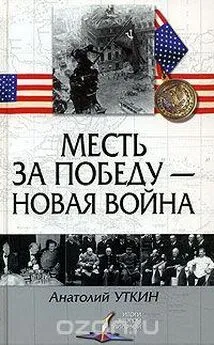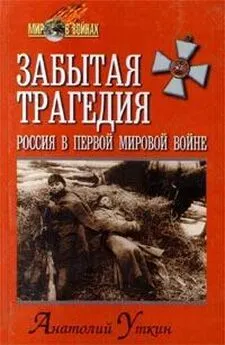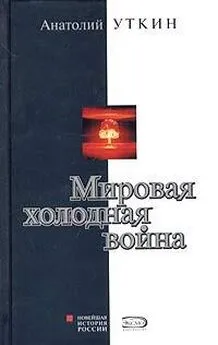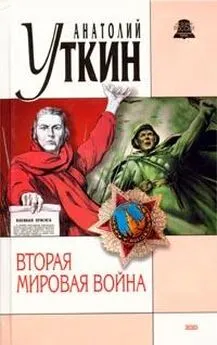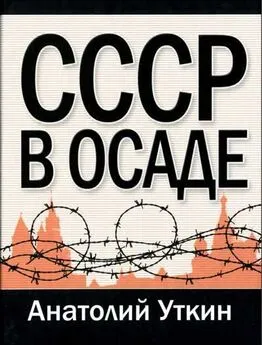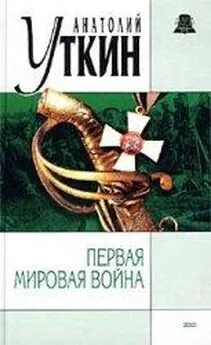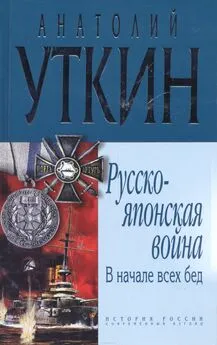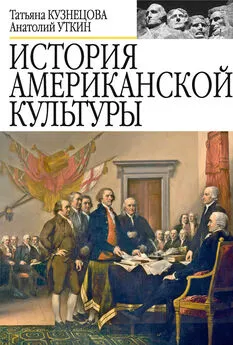Анатолий Уткин - Месть за победу — новая война
- Название:Месть за победу — новая война
- Автор:
- Жанр:
- Издательство:Экcмо
- Год:2005
- Город:Москва
- ISBN:5-699-13363-1
- Рейтинг:
- Избранное:Добавить в избранное
-
Отзывы:
-
Ваша оценка:
Анатолий Уткин - Месть за победу — новая война краткое содержание
Великая Победа советского народа во Второй мировой войне привела к новой расстановке сил в Европе и мире. В сферу влияния СССР вошли страны всех континентов, объединенные общим порывом к справедливому устройству общества. Запад ответил на увеличение влияния стран народной демократии холодной войной, которая привела к поражению советской сверхдержавы и распаду социалистическою лагеря. Но и этого оказывается недостаточно: единственная сверхдержава стремится к тотальному пересмотру итогов Второй мировой и контролю над природными ресурсами планеты. Известный ученый–американист А. И.Уткин убедительно доказывает, что новый глобальный передел мира уже идет. И в центре схватки — вновь Россия с ее колоссальными запасами сырьевых ресурсов. Поэтому не случайны «бархатные» и «оранжевые» революции на постсоветском пространстве, войны на Балканах, в Ираке и Афганистане, спланированные и развязанные США в последнее время. Американский реваншизм — это месть за Великую Победу СССР над фашизмом.
Месть за победу — новая война - читать онлайн бесплатно полную версию (весь текст целиком)
Интервал:
Закладка:
561
Harrison L. Culture Matters («The National Interest», Summer 2000, p. 55).
562
Gardner C, Halweil B. Underfed and Overfed. The Global Epidemic of Malnutrition. Worldwatch paper, № 150, W., March 2000, p. 11.
563
Haddad L., Ruel M., Garrett J. Are Urban Poverty and Undernutrition Growing? Discussion Paper, № 63, Washington, IFPRI, April 1999.
564
Speth J. G. The Plight of the Poor. The United States Must Increase Development Aid («Foreign Affairs», May/June 1999, p. 13–14).
565
«Foreign Affairs», Jan./Feb. 2000, p. 83.
566
UNDP Report 1999, N. Y., 1999, p. 3.
567
«Foreign Affairs», Jan./Feb. 2000, p. 83.
568
Development Assistance Committee, OECD, 1999.
569
Kapstein E. Reviving Aid. Or Does Charity Begin at Home? («World Policy Journal», Fall 1999, p. 39).
570
Gardner G, Halweil B. Underfed and Overfed. The Global Epidemic of Malnutrition. Worldwatch paper, № 150, W., March 2000, p. 49.
571
Schweninger S. American Foreign Policy in the Post‑Cold War World («World Policy Journal», Summer 1999, p. 69).
572
ВР Statistical Review of World Energy, 1995, p. 36.
573
World Economic and Social Survey 1995. W., 1995, p. 168.
574
Wallerstein I. Peace, Stability, and Legitimacy, 1990–2025/2050. — In: Fall of Great Powers: Peace, Stability, and Legitimacy. Oslo, 1996.
575
«International Herald Tribune», September 21, 2001.
576
Buvinic M. and Morrison A. Living in a More Violent World («Foreign policy», Spring 2000, p. 65).
577
The National Interest», Summer 2000, p. 57.
578
Speth J. G. The Plight of the Poor. The United States Must Increase Development Aid («Foreigh Affairs», May/June 1999, p. 122).
579
McRae H. The World in 2020. Power, Culture and Prosperity. Boston, 1994, p. 5.
580
Singer M. The Challenge to Science: How to Mobilize American Ingenuity (In: Talbott S. and Chanda N. (eds). The Age of Terror. Oxford: The Perseus Press, 2001, p. 217).
581
Speth J. G. The Plight of the Poor. The United States Must Increase Development Aid («Foreign Affairs», May/June 1999, p. 13).
582
Gurmeet Kanval. The New World Order: An Appraisal‑1. («Strategic Analysis», June 1999, p. 352).
583
Kaufman S. Approaches to Global Politics in the Twenty–first Century. A Review Essay// International Studies Review, p. 201.
584
Perry W. Preparing for the Next Attack («Foreign Affairs», November‑December 2001, p. 45).
585
Schroeder P. The Risks of Victory. An Historian's Provocation («National Interest», Winter 2001/02, p. 28).
586
«International Herald Tribune», April 8, 2002.
587
Kaplan R. The World of Achilles. Ancient Soldiers, Modern Warners («National Interest», Winter 2001/02, p. 38–39).
588
Perry W. Preparing for the Next Attack («Foreign Affairs», November‑December 2001, p. 36).
589
Ibid, p. 40.
590
Ibid, p. 43.
591
«National Interest», Winter 2001/02, p. 43.
592
Schroeder P. The Risks of Victory. An Historian's Provocation («National Interest», Winter 2001/02, p. 36).
593
Kaplan R. The World of Achilles. Ancient Soldiers, Modern Warners («National Interest», Winter 2001/02, p. 45).
594
Schroeder P. The Risks of Victory. An Historian's Provocation («National Interest», Winter 2001/02, p. 35).
595
Ibid, p. 34.
596
Ibid, p. 33).
597
«The New York Times», April 4, 2002.
598
Hoge J. and Rose G. (eds). How Did This Happen? Terrorism and the New War. New York, 2002, p. 5.
599
Keller B. Does Not Play Well with Others («New York Times», June 22, 2003, p. 9.
600
Newhouse J. Imperial America. The Bush Assault on the World Order. New York: Alfred A. Knopf, 2003, p. 163.
601
Zakaria Fareed. The Challenges of American Hegemony («International Journal», Winter 1998/9, p. 20).
602
Wilkinson D. Unipolarity Without Hegemony («International Studies Review», Summer 1999, p. 145).
603
Kagan R. and Kristol W. Present Dangers: Crisis and Opportunity in American Foreign and Defense Policy. New York: Encounter books, 2000.
604
Rieff D. A Second American Century? The Paradoxes of Power («World Policy Journal», Winter 1999/2000, p. 9).
605
Garrison J. America as Empire. Global Leader or Rogue Power? San — Francisco: Burrett — Koehler Publishers, 2003, p. 117.
606
Durant. Story of Civilization, vol. I, Our Oriental Heritage, p. 222.
607
Waltz К. Globalization and American Power («The National Interest», Spring 2000, p. 54).
608
Haass R. The Reluctant Sheriff. The United States After the Cold War. N. Y., 1997, p. 41.
609
Joffe J. How America Does It («Foreign Affairs», September/ October 1997, p. 13).
610
«Foreign Affairs», March/April 1999, p. 42–43.
611
Gurmeet Kanwa/. China's Long March to World Power Status: Strategic Challenge for India. («Strategic Analysis», February 1999, p. 1714).
612
Ibid., p. 44.
613
Garrison J. America as Empire. Global Leader or Rogue Power? San — Francisco: Burrett — Koehler Publishers, 2003, p. 175.
614
Ibid.
615
Garrison J. America as Empire. Global Leader or Rogue Power? San — Francisco: Burrett — Koehler Publishers, 2003, p. 180.
616
Mallaby S. The Reluctant Imperialist («Foreign Affairs», March/ April 2002, p. 7.
617
Garrison J. America as Empire. Global Leader or Rogue Power? San — Francisco: Burrett — Koehler Publishers, 2003, p. 190.
618
Soros G. On Globalization. New York: Public Affairs, 2002, p. 165.
619
Garrison J. America as Empire. Global Leader or Rogue Power? San — Francisco: Burrett — Koehler Publishers, 2003, p. 199.
620
Garrison J. America as Empire. Global Leader or Rogue Power? San — Francisco: Burrett — Koehler Publishers, 2003, p. 200.
621
Allman T. Rogue State. America at War with the World. New York: Nation Books, 2004, p. 389.
622
Krauthammer СИ. Beyond the Cold War («New Republic», December 19, 1988, p. 18).
623
«International Herald Tribune», April 8, 2002.
624
Huntington S. Who Are We? The Challenges to America's National Identity. New York: Simon and Schuster, 2004, p. 264.
625
Smith A. An Inquiry into the Nature and Cause of the Wealth of Nations. Chicago: University of Chicago, 1976, vol. 2, p. 375–376.
626
Hunter J. and Yates J. In the Vanguard of Globalization (in: P. Berger and S. Huntington, eds. Many Globalizations: Cultural Diversity in the Contemporary World. New York: Oxford University Press, 2000, p. 345–357).
627
Office of the President. National Strategy to Combat Weapons of Mass Destruction. December 2002.
628
Ferguson N. Colossus. The Price of American Empire. New York: The Penguin Press, 2004, p. 202.
629
Ibid.
630
Ferguson N. Colossus. The Price of American Empire. New York: The Penguin Press, 2004, p. 290.
Интервал:
Закладка:
